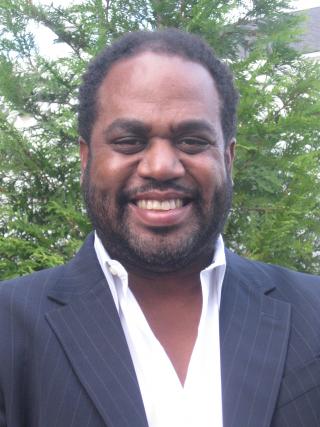Oct. 6: Meet the Candidate: Executive Director, UMB Center for Violence Prevention
September 28, 2022
VISION for UMB Center for Violence Prevention
Join us at 3:30 p.m. Oct. 6 for a town hall to meet a candidate being considered as executive director for the UMB Center for Violence Prevention. This event is open only to UMB faculty, staff, and students.
Who: Joseph B. Richardson Jr., PhD
Joel and Kim Feller Endowed Professor of African American Studies and Anthropology and MPower Professor, University of Maryland, College Park
Date: Oct. 6, 2022
Time: 3:30-4:15 p.m.
Location: University of Maryland Francis King Carey School of Law
Second floor, Room 202
Space is limited.
Register to attend virtually (password: CVP2022)
About the Candidate
The research of Joseph B. Richardson Jr., PhD, focuses on four specific areas: 1) violence and trauma; 2) incarceration as a social determinant of health; 3) the Black male life course and health risk behaviors; and 4) parenting strategies for low-income Black male youth. Dr. Richardson, who is trained as a criminologist and medical anthropologist, is the director of the Violence Intervention Research Project at Prince George's Hospital Trauma Center, the busiest Level II trauma center in the U.S.
He is principal investigator on several qualitative research studies. The first study examines the risk factors for repeat violent injury, linkages/barriers to care, and HIV risk related behaviors among young Black men treated by Prince George’s Hospital for violent injury (i.e., gunshot wound, stabbing, or assault). Another study funded by the Robert Wood Johnson Foundation examines the role and function of the Affordable Care Act Navigator, specifically, experiences enrolling victims of violent injury into health insurance coverage. This study is being conducted at the University of Maryland Medical System R Adams Cowley Shock Trauma Center in Baltimore and the Prince George’s Hospital Trauma Center.
Dr. Richardson, the Joel and Kim Feller Endowed Professor of African American studies at the University of Maryland, College Park (UMCP), was recently awarded a joint appointment in the Department of Anthropology (Anthropology of Health). He was also recently appointed as an inaugural MPower Professor by the University of Maryland Strategic Partnership, MPowering the State, a collaboration between UMB and UMCP.
Dr. Richardson earned his PhD from Rutgers University School of Criminal Justice and his bachelor’s degree in African and African American studies from the University of Virginia. He completed a Spencer Foundation postdoctoral research training fellowship at the University of Chicago and a National Institute of Mental Health-funded clinical postdoctoral research training fellowship in substance use, mental health, and HIV/AIDS in Correctional Health Care at the Morehouse School of Medicine and the University of North Carolina School of Medicine.
About the Center for Violence Prevention
Amid a national conversation about gun violence, the University of Maryland, Baltimore (UMB) and the R Adams Cowley Shock Trauma Center (Shock Trauma) at the University of Maryland Medical Center are collaborating to create the UMB Center for Violence Prevention, which will draw upon the resources and expertise from both anchor institutions to help reduce and respond to violence in Baltimore City and beyond.
The initiative seeks to address violence prevention and intervention efforts through a combined effort of Shock Trauma and the University of Maryland schools of medicine and social work, and the University of Maryland Francis King Carey School of Law.
Funded by a $2 million gift from Betsy Sherman and the Sherman Family Foundation, the center will bridge numerous research and clinical programs already in place at UMB that address gun violence. With an interdisciplinary approach, the center will collaborate and partner across communities, academic institutions, nonprofit organizations, governmental bodies, corporations, and philanthropic organizations to advocate for informed policies and interventions toward violence prevention and creating social justice for all. This is achieved through collaborations and community-based partnerships to conduct research, develop creative and impactful education, and advocate for policies that strengthen our communities to prevent violence and trauma.